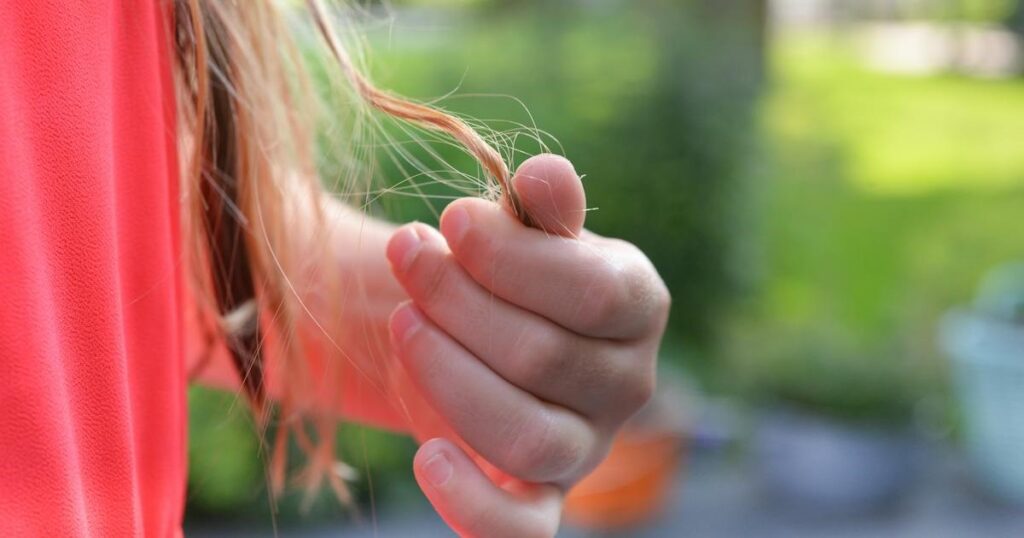
A healthy person can lose up to a hundred strands of hair per day. However, there are ways to know if your hair loss has gone beyond the acceptable limit to an alarming amount. To do this, you can do a simple test: run your hands through your hair and count how many strands naturally come loose between your fingers. If the number is greater than five, it may be a sign of pathology.
In addition to the aesthetic factor, hair loss can mean health problems. Therefore, it is worth investigating the reasons behind the problem and seeking appropriate treatment. If you notice that there is excessive hair loss, the most recommended thing is to go to a dermatologist or trichology, specialist professionals, indicated to guide the patient on the necessary treatment. After all, it is necessary to discover the causes to begin the most appropriate treatment.
Continue reading and understand why hair falls out and what factors can influence the problem. At the end, you will know the main ways to solve the problem.
How does hair loss happen?
As we mentioned, hair loss is a natural process in the body. In other words, the hair itself goes through stages ranging from growth, stabilization and natural fall. Thus, the first cycle lasts, on average, three to six years, the second two years and the last three months.
However, time and genetics may be responsible for thinning hair. Furthermore, there is also hair loss without a specific cause, such as telogen effluvium. Hair can also fall out due to endocrine or metabolic diseases, such as thyroid dysfunction. In fact, hair loss can be linked to stress, anemia or hormonal changes. These are known as the three most common causes of hair loss.
1. Stress
Physical or emotional stress affects health and can cause hair loss. This occurs because the brain releases substances that accelerate hair loss when it is forced to spend long periods in a state of alert. If not treated in time, the problem can develop into alopecia aerate. In this case, an inflammatory process in the root area of the hair causes hair loss concentrated in circular regions of the scalp.
2. Genetics
The main villain of hair loss is genetics, with men being the most affected in this case, giving rise to baldness, which occurs when hair follicles are stimulated by male hormones. The result is a reduction in the hair growth cycle until total interruption occurs. In most cases, hair loss is concentrated in the upper part of the scalp, while the sides do not change.
3. Chemical procedures
Some things seen as hair care can actually damage strands and, in excess, cause hair loss. This is the case with chemical products, whether for dyeing, bleaching or straightening. So, to avoid this trap, discover the natural beauty of your hair by taking care of your hair health.
4. Postpartum
During pregnancy, there is a change in hormones, which causes hair loss to stop. After the baby is born, about three months after birth, the hormones return to normal and all that hair that hadn’t fallen out, finally, falls out. In this case, there is the sensation of an excessive fall. In any case, in the postpartum period, some women may have unregulated hormones and vitamin deficiency due to breastfeeding, making the loss really excessive.
5. Vitamins
Lack or excess of vitamins and nutrients also affect the scalp. The main cases are iron deficiency, excess vitamin A and lack of protein. The advantage, in these cases, is that the treatment is simple. Just balance your diet and the results will be noticed in a few weeks.
6. Hormones
Male hormones are the protagonists in genetic hair loss. On the other hand, female hormones may be responsible for hair loss on several occasions throughout women’s lives. Any situation with major hormonal changes can be a trigger for hair loss. Examples of this are: pregnancy, changing or discontinuing contraceptive pills and menopause.
7. Medicines
Certain medications can weaken hair strands, causing an increase in hair loss. Among them, are antidepressants, antihypertensives, antibiotics, chemotherapy drugs, anabolic steroids and oral contraceptives.
Therefore, it is necessary to be aware of the adverse reactions that some medications cause. As well as consulting a specialized healthcare professional who can help with this condition.
8. Oiliness
Excessive oiliness can cause the proliferation of fungi, causing inflammation in the scalp region. This causes hair loss, itching and flaking. To solve this problem, the interval between baths can be reduced. However, when taking a shower, avoid hot water and rubbing your scalp vigorously.
Furthermore, it is recommended to use specific shampoos recommended by the dermatologist, in addition to avoiding applying conditioners, masks and finishers such as living creams, close to the roots, coming into contact with the scalp.
9. Metabolism
A metabolism that is too slow can make it difficult for the blood vessels that supply the scalp to work. Thus, the hair does not receive adequate nutrition and begins to fall out. Therefore, diabetes, obesity and hypertension can worsen this condition.
To treat the problem effectively and lastingly, it is necessary to act from the inside out, on the hair’s biological engine. Keranat is an active ingredient for exclusive use to reduce hair loss and restore the health and beauty of hair. They help restore hair health, reduce hair loss, and increase hair shine and volume.
10. Life habits
Food plays a fundamental role in strengthening hair. Undeniably, it is through dietary intake that the body obtains the vitamins, nutrients and minerals necessary for healthy hair growth.
Therefore, it is important to maintain a balanced and balanced diet. Furthermore, avoid harmful habits such as smoking, which introduces toxic substances into the body that are harmful to the entire organism, even interfering with hair vitality.


